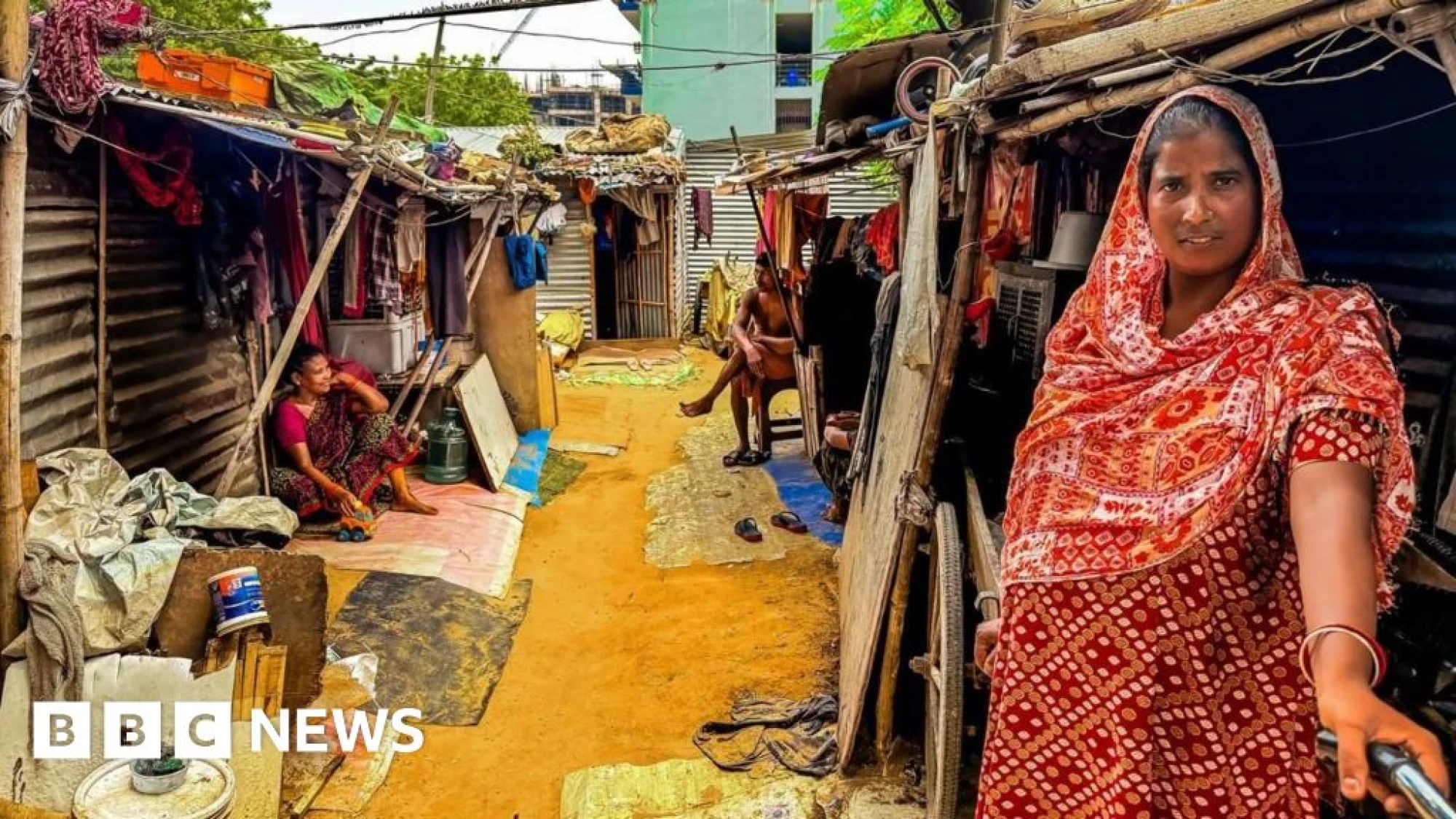India police raid on Delhi migrants shows stark inequalities

An upscale Indian suburb is rounding up some of its most marginalised residents, saying they are illegal immigrants.
Watch LiveBritish Broadcasting CorporationHomeNewsSportBusinessInnovationCultureArtsTravelEarthAudioVideoLiveHomeNewsIsrael-Gaza WarWar in UkraineUS & CanadaUKUK PoliticsEnglandN. IrelandN. Ireland PoliticsScotlandScotland PoliticsWalesWales PoliticsAfricaAsiaChinaIndiaAustraliaEuropeLatin AmericaMiddle EastIn PicturesBBC InDepthBBC VerifySportBusinessExecutive LoungeTechnology of BusinessFuture of BusinessInnovationTechnologyScience & HealthArtificial IntelligenceAI v the MindCultureFilm & TVMusicArt & DesignStyleBooksEntertainment NewsArtsArts in MotionTravelDestinationsAfricaAntarcticaAsiaAustralia and PacificCaribbean & BermudaCentral AmericaEuropeMiddle EastNorth AmericaSouth AmericaWorld’s TableCulture & ExperiencesAdventuresThe SpeciaListEarthNatural WondersWeather & ScienceClimate SolutionsSustainable BusinessGreen LivingAudioPodcast CategoriesRadioAudio FAQsVideoLiveLive NewsLive SportHomeNewsSportBusinessInnovationCultureArtsTravelEarthAudioVideoLiveWeatherNewslettersWatch LiveIndia's immigration raids send ripples through slums and skyscrapers alike4 days agoShareSaveZoya MateenBBC News, DelhiShareSaveZoya Mateen/BBCThousands of Bengali-Muslim families in India face an uncertain future amid an ongoing drive to catch illegal immigrants In Gurugram, an upscale suburb just outside Delhi, gleaming SUVs, futuristic skyscrapers and neat apartments stand in stark contrast to nearby mosquito swarms, trash heaps and tarpaulin shanties.
Inside the gated compounds live some of India's richest, while in the slums nearby live poor migrant workers - mostly domestic helpers, garbage-pickers and daily-wage workers - who keep the affluence going.
Last month, local authorities rounded up hundreds of these workers, most of whom say they are Bengali-speaking Muslims from India's West Bengal state, in a "verification" drive targeting illegal Bangladeshi immigrants.
The suspects were detained and kept at "holding centres" where they were asked to provide documents to prove their citizenship. Many allege they were beaten and mistreated by police during the process. Police officials deny these allegations.
"I had my voter and national ID cards, but they told me they were fake. I spent six days not knowing my fate before I was finally released," said Ather Ali Sheikh, a daily-wage worker, who has lived in the city for 15 years.
https://www.bbc.com/news/articles/crevjxgqwnjo?at_medium=RSS&at_campaign=rss
Rating: 5